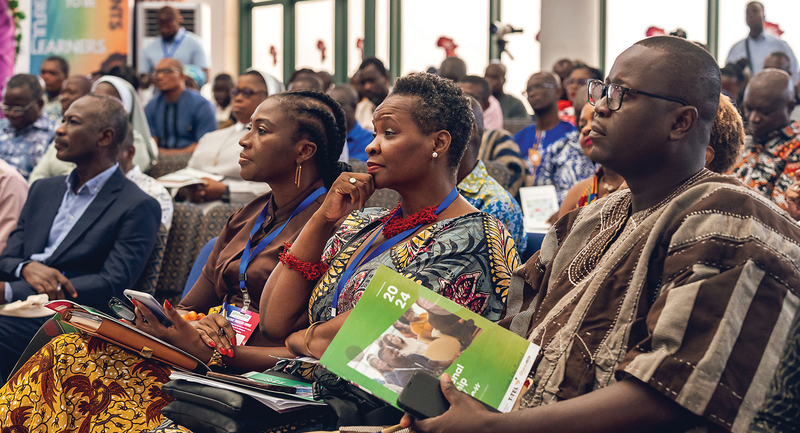"Don't Change Anything Big"
I am a brand-new elementary school principal. I started the job on August 17, 2020, amid a pandemic, and admittedly, it has been a whirlwind. One of the greatest myths I always heard about the principalship was, "Don't change anything big the first year!" I believe this myth is grounded in solid pedagogy about building relationships, background, and credibility before taking on unnecessary changes. I agree wholeheartedly. I have worked tirelessly to get to know my staff, students, parents, school data, traditions, and history. I must learn the path behind before I can establish the road ahead.
While the foundation behind the myth is true, I do believe principals can and should make the "big" necessary changes during their first year. If I had not embarked on changing collaboration procedures, staffing, the master schedule, observations, coaching, and more at my school (all BIG changes), I do not believe we would have made it through these last several months. COVID has flipped the script on some traditional principal myths. We need to be ready to meet the changing climate with conviction and confidence (even if we are new)!
—Jennifer Haws, principal, Corporate Landing Elementary, Virginia Beach City Public Schools, Virginia Beach, Virginia
"You'll Never Maintain Student Connections"
It's definitely a myth that once we're out of the classroom, we won't have the opportunity to build relationships with students. While I don't have a classroom of my own anymore, I make sure to visit students in all settings as much as possible. Witnessing students singing in chorus, creating in engineering, or writing in English class are just different ways to experience students enjoying school. It's so important to attend athletic and co-curricular events as well; students really appreciate it when we cheer them on and applaud their performances. In addition, as an assistant principal, one large responsibility of mine is discipline. While this is certainly one of my least favorite aspects of the role, I have built some of the most solid relationships with kids by working through behavior issues. In fact, some of the most challenging students turn out to be the ones who visit the most after they graduate! It's truly all about how intentional building administrators are about seeking out students, expressing interest in their lives, and showing genuine concern for who they are. I don't think we really lose our classrooms when we become principals; they just get a whole lot bigger!
—Michelle Papa, assistant principal, Jefferson Township High School, Oak Ridge, New Jersey
"Leaders Alone Make the Difference"
One myth is that principals can improve their schools by themselves. "If we just hire the right leader, all will be fixed." This is not true. Schools improve only when teachers are empowered to be leaders, too. Principals can facilitate this process a number of ways, such as through creating conditions for trust, organizing around an agreed-upon priority, affirming teachers' attempts at more promising practices, and communicating timely and welcome feedback. Principals cannot do it alone; teacher leaders are the key to schoolwide success.
—Matt Renwick, principal, Mineral Point Elementary School, Mineral Point, Wisconsin
"It's All About High-Level Decisions"
Your day is filled with instructional leadership, promoting a positive school culture, building relationships, and leading a safe, caring, effective, and efficient learning environment. Sometimes this is true, and sometimes they just need you to help serve meals or shovel snow. These days are just as important as the others.
—Adam Fette, education professor, Chadron State College, Chadron, Nebraska
"Principals Are Power-Hungry"
One great myth: Principals are in the position because all they want is power and control. If we wanted those things, we would find another profession. We are educators first and continue to learn every day. We don't have all the answers to all the questions. We ask for help, not to show weakness, but to show vulnerability.
—Jacques Viau, elementary principal, Elizabethtown Area School District, Elizabethtown, Pennsylvania
"There's a Prototype to Follow"
The one great myth about being a school principal is that there is a perfect prototype that all leaders must follow: fearless, strong, compassionate, all-knowing, and able to raise test scores in one year. The real secret is that a great leader needs to be their authentic self, willing to take risks, fail, love their community, be creative with the tools at hand, and be a lifelong learner.
—Jill Merolla, supervisor of community outreach and grant development, Warren City Schools, Warren, Ohio
"We Have All the Answers"
One great myth about being a school principal is that the teachers think we have all the answers readily available to us when they ask or need something. The truth is—we don't always have the answers. Especially during the pandemic, a lot of principals are trying to lead with their hearts and make the best decisions for the health and safety of all students and teachers. To be honest, curriculum implementation has taken somewhat of a backseat. School leaders are trying to address the social-emotional issues of all stakeholders while at times forgetting about themselves and their own needs. Principals are relying on one another, their staff, and district leadership to lead through these uncertain times.
—Amanda Austin, director, Iberville STEM Academy, Rosedale, Louisiana
"Everyone Has the Same Goals for Students"
I think the myth I struggled with the most was that it took longer than I expected to create a healthy, collaborative, child-centered culture with my staff. I assumed that it was an automatic goal for everyone to focus on academic excellence for every student, only to discover everyone had differing agendas. I was blessed to have had prior training and work in the area of educational group processing, backward planning, and managing the change process. These skills helped me immensely in bringing staff together in multiple ways to create a new vision and purpose that put students first while building teams to support each other.
—Patti McVay, retired principal, Portland Public Schools, Portland, Oregon
"Just Be an Instructional Leader"
One thing that I have learned in almost 25 years as an administrator and principal is that you can't just be the instructional leader or just be the manager or just be the supervisor. You have to be all those things and more. I have been an adjunct professor for new administrators, and my students will often be shocked about the things I have to do that go beyond instruction and student management. They don't understand that you have to be the instructional leader, student manager, business manager, counselor, coach, communicator, nurse, doctor, parent, and so on. I love being a principal, but this was a shock to me when I saw how many things that I do and am responsible for now.
—Jon Pede, principal, Poynter Middle School, Hillsboro, Oregon
"Everybody Likes You!"
Prior to becoming a principal of a special school in NSW, Australia, I underwent four months of chemotherapy followed by radiation therapy. I was excited about getting back to education after eight months off, and I did so with great anticipation and many goals and aspirations to transform an underperforming school. I thought everyone would be equally excited to have me on board.
I found that managing change brings with it the need for great tenacity and the need for thick skin. While I knew where we were heading, the gap in skills, knowledge, and understanding amongst the staff was far greater than I realized. Months into the role I remember thinking, I can do chemotherapy and everything that goes with it, but I'm not sure I can be the person that causes so many people discomfort.
Fast forward five years, and the myth has been debunked completely. While change now has become the most predictable part of working in our school, I have realized it isn't about being liked. It's about being respected and bringing your team along on the journey.
—Bronwyn Thoroughgood, principal, St Philip's Christian Education Foundation, New South Wales, Australia
Share your responses to upcoming questions at www.ascd.org/tellusabout.








